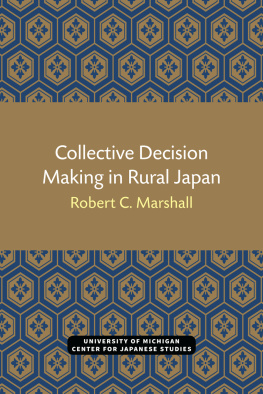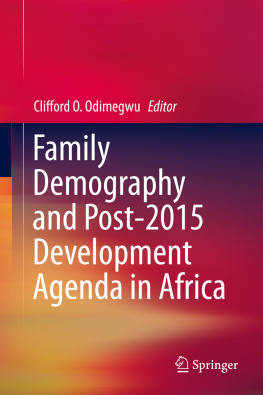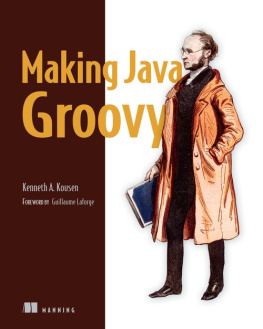Linda B Williams - Development, Demography, And Family Decision-making: The Status Of Women In Rural Java
Here you can read online Linda B Williams - Development, Demography, And Family Decision-making: The Status Of Women In Rural Java full text of the book (entire story) in english for free. Download pdf and epub, get meaning, cover and reviews about this ebook. year: 2019, publisher: Routledge, genre: Home and family. Description of the work, (preface) as well as reviews are available. Best literature library LitArk.com created for fans of good reading and offers a wide selection of genres:
Romance novel
Science fiction
Adventure
Detective
Science
History
Home and family
Prose
Art
Politics
Computer
Non-fiction
Religion
Business
Children
Humor
Choose a favorite category and find really read worthwhile books. Enjoy immersion in the world of imagination, feel the emotions of the characters or learn something new for yourself, make an fascinating discovery.

- Book:Development, Demography, And Family Decision-making: The Status Of Women In Rural Java
- Author:
- Publisher:Routledge
- Genre:
- Year:2019
- Rating:4 / 5
- Favourites:Add to favourites
- Your mark:
- 80
- 1
- 2
- 3
- 4
- 5
Development, Demography, And Family Decision-making: The Status Of Women In Rural Java: summary, description and annotation
We offer to read an annotation, description, summary or preface (depends on what the author of the book "Development, Demography, And Family Decision-making: The Status Of Women In Rural Java" wrote himself). If you haven't found the necessary information about the book — write in the comments, we will try to find it.
Linda B Williams: author's other books
Who wrote Development, Demography, And Family Decision-making: The Status Of Women In Rural Java? Find out the surname, the name of the author of the book and a list of all author's works by series.
Development, Demography, And Family Decision-making: The Status Of Women In Rural Java — read online for free the complete book (whole text) full work
Below is the text of the book, divided by pages. System saving the place of the last page read, allows you to conveniently read the book "Development, Demography, And Family Decision-making: The Status Of Women In Rural Java" online for free, without having to search again every time where you left off. Put a bookmark, and you can go to the page where you finished reading at any time.
Font size:
Interval:
Bookmark:

Calvin Goldscheider
Philip Leis
Morris D. Morris
Alden Speare, Jr.

52 Vanderbilt Avenue, New York, NY 10017
2 Park Square, Milton Park, Abingdon, Oxon OX14 4RN
Product or corporate names may be trademarks or registered trademarks, and are used only for identification and explanation without intent to infringe.
Williams, Linda B.
Development, demography, and family decision-making: the status of women in rural Java/Linda B. Williams.
p. cm.(Brown University studies in population and development)
ISBN 0-8133-8020-0
1. Women in rural developmentIndonesiaJava. 2. WomenIndonesiaJavaHistory. 3. Family demographyIndonesiaJava. I. Title. II. Series.
HQ1240.5.15W55 1990
305.42'09598'2dc20
CIP
THE ROLE OF WOMEN IN SOCIO-ECONOMIC DEVELOPMENT
WOMEN, DEVELOPMENT, AND DEMOGRAPHIC PROCESSES
THE INDONESIAN CONTEXT
THE SAMPLE, METHODS, AND VARIABLE DEFINITIONS
INTERGENERATIONAL DYNAMICS IN THE MARRIAGE DECISION
POST-MARRIAGE MIGRATION AND THE STATUS OF WOMEN
CONTRACEPTION AND FERTILITY
SUMMARY AND CONCLUSIONS
- ii
Font size:
Interval:
Bookmark:
Similar books «Development, Demography, And Family Decision-making: The Status Of Women In Rural Java»
Look at similar books to Development, Demography, And Family Decision-making: The Status Of Women In Rural Java. We have selected literature similar in name and meaning in the hope of providing readers with more options to find new, interesting, not yet read works.
Discussion, reviews of the book Development, Demography, And Family Decision-making: The Status Of Women In Rural Java and just readers' own opinions. Leave your comments, write what you think about the work, its meaning or the main characters. Specify what exactly you liked and what you didn't like, and why you think so.






![Nzenwa I. U - Java Basics: An intro to Java and the Java developement [development] environment](/uploads/posts/book/109245/thumbs/nzenwa-i-u-java-basics-an-intro-to-java-and-the.jpg)
